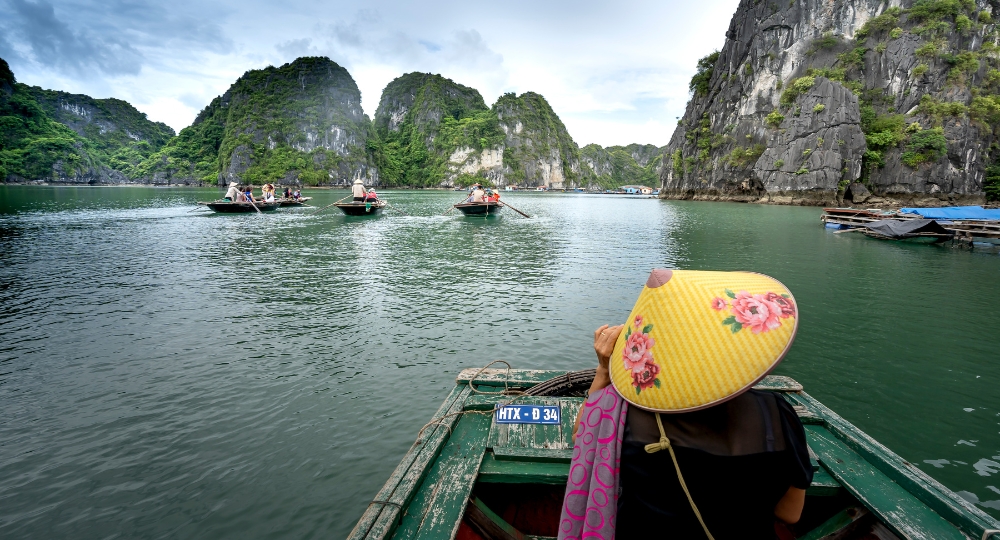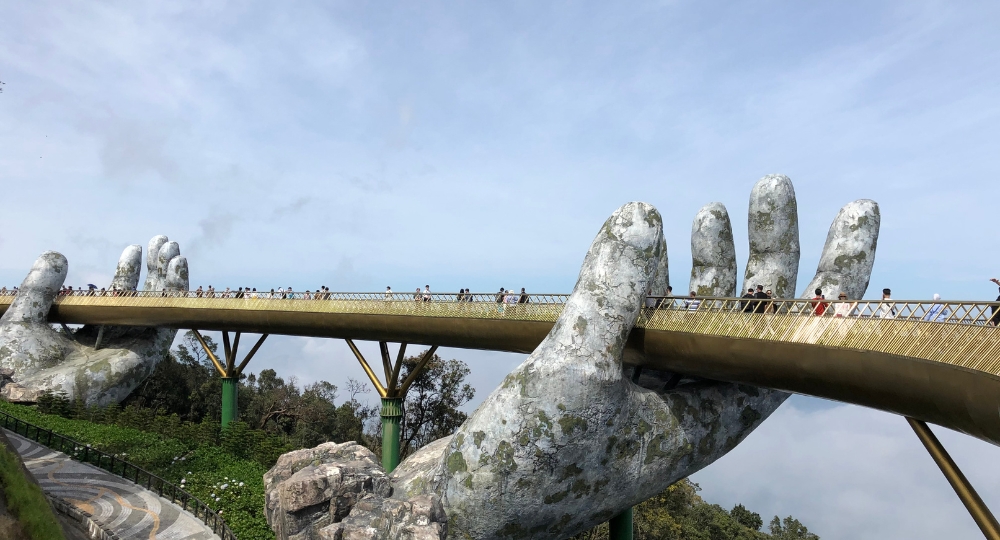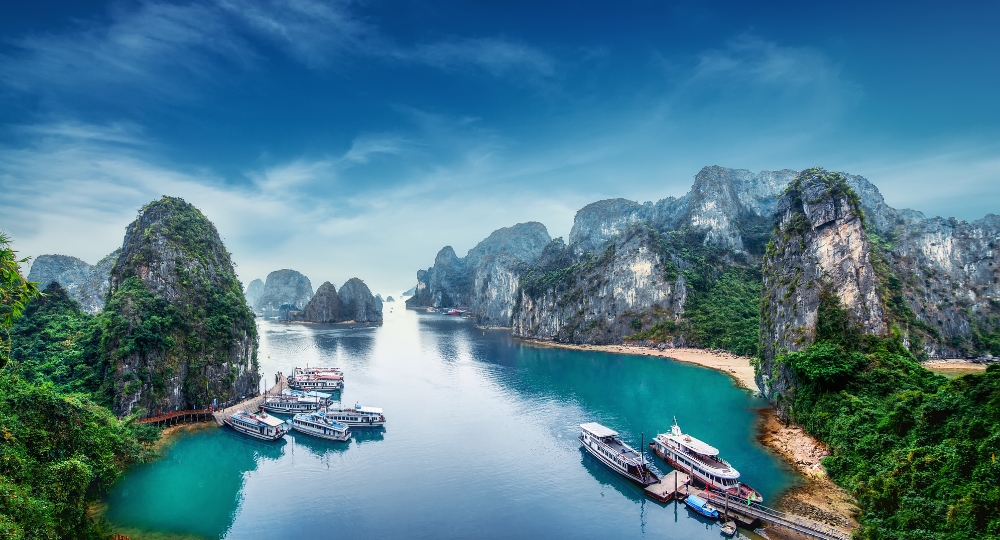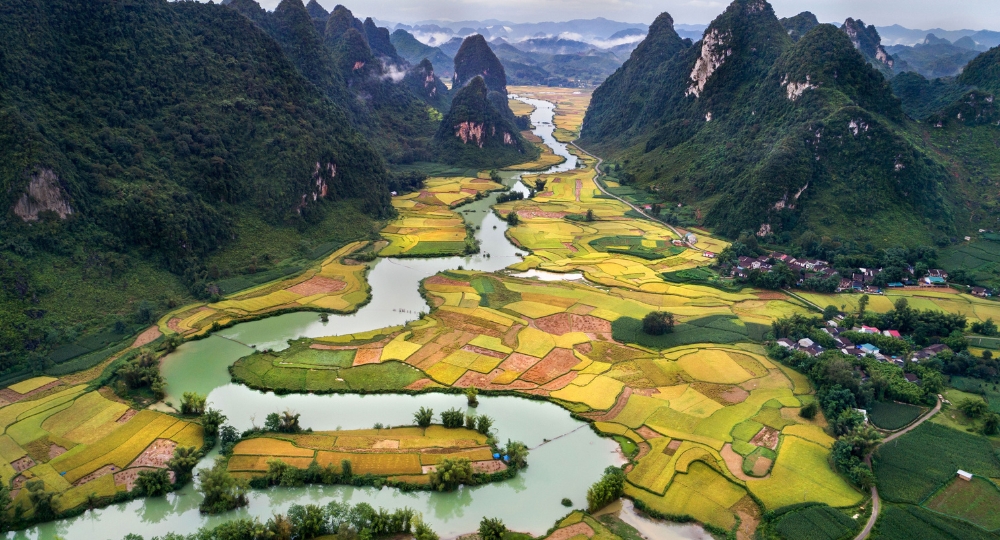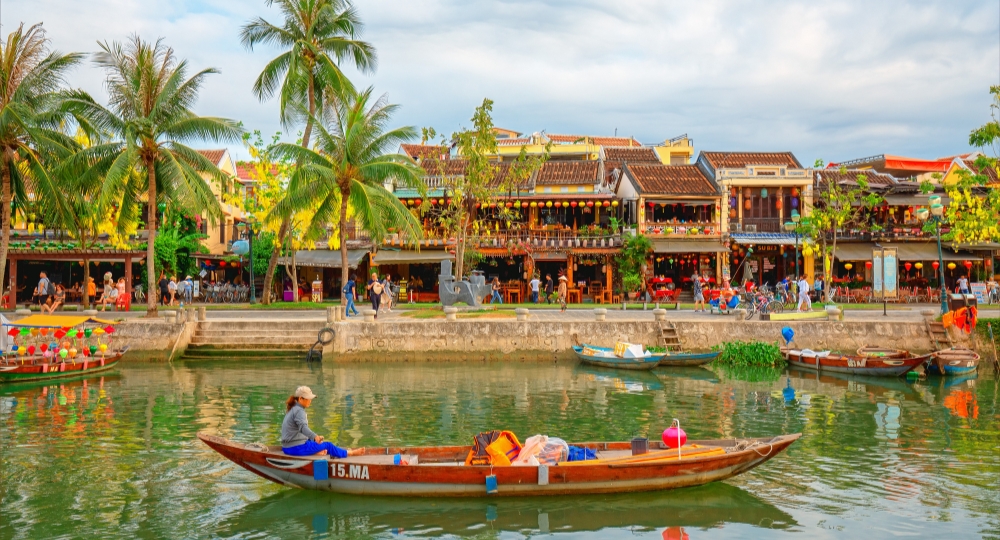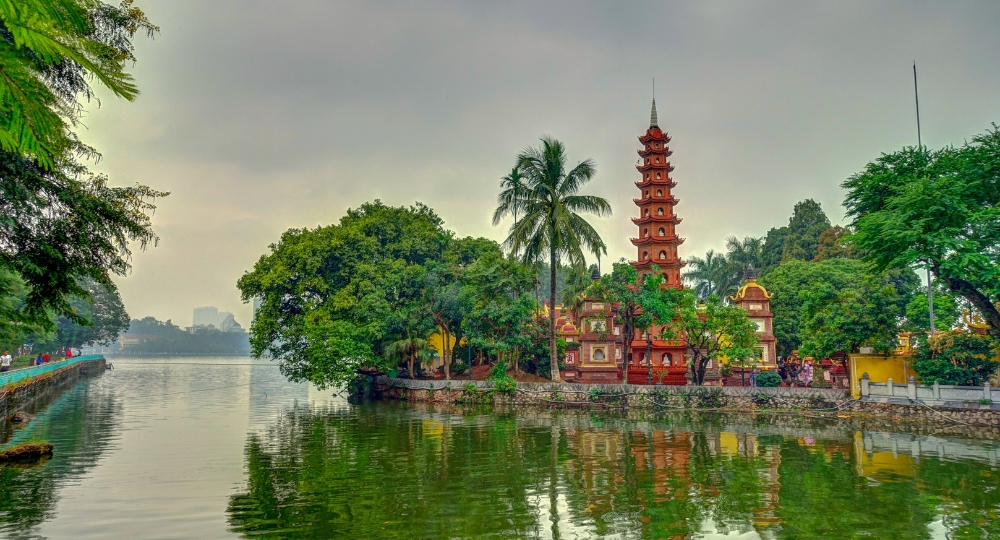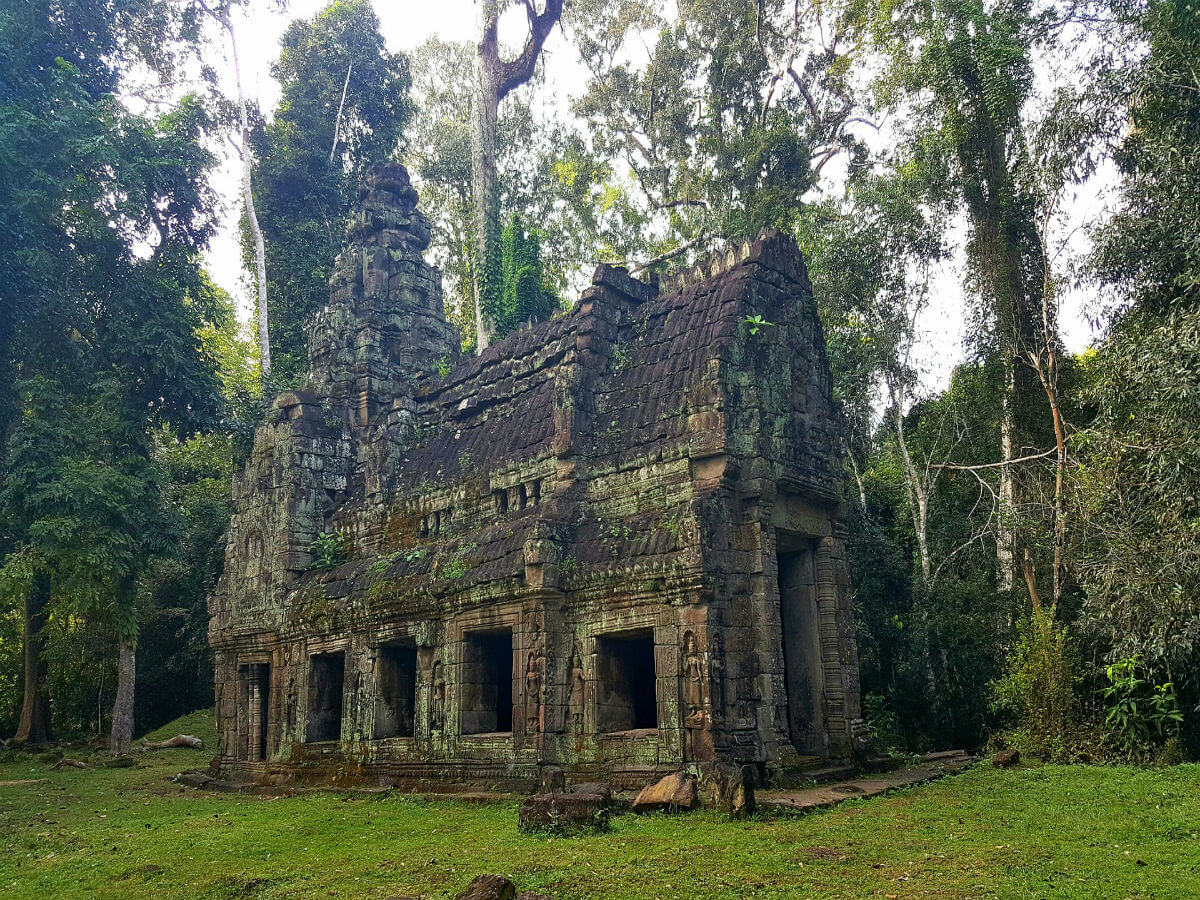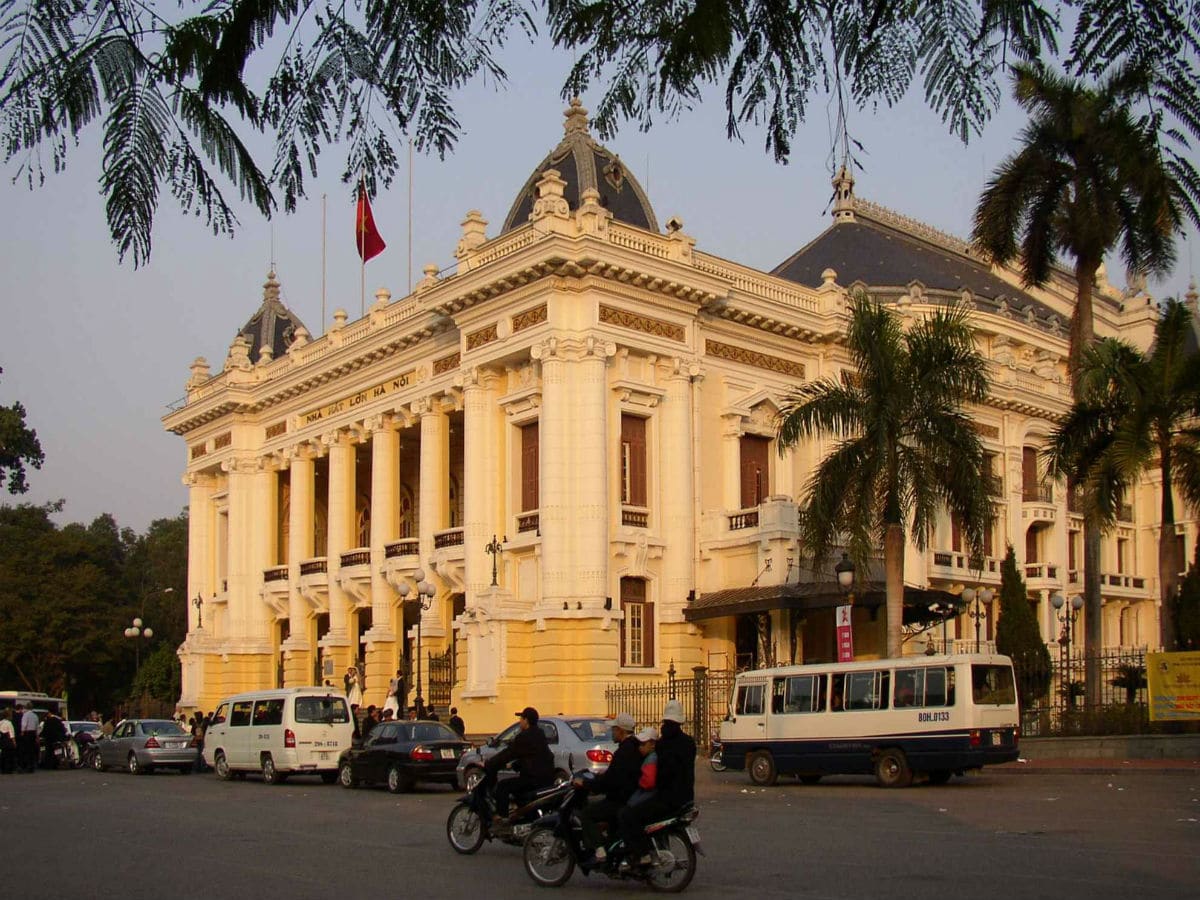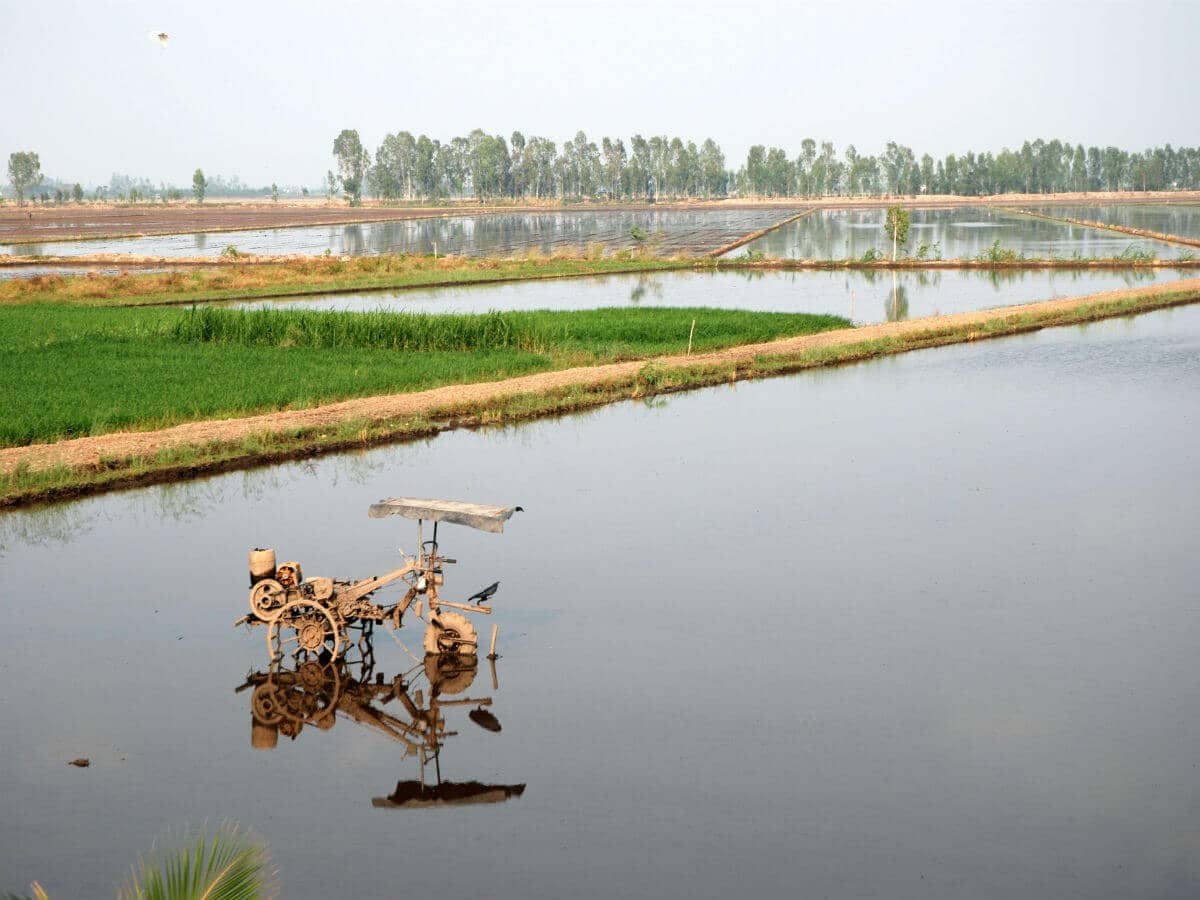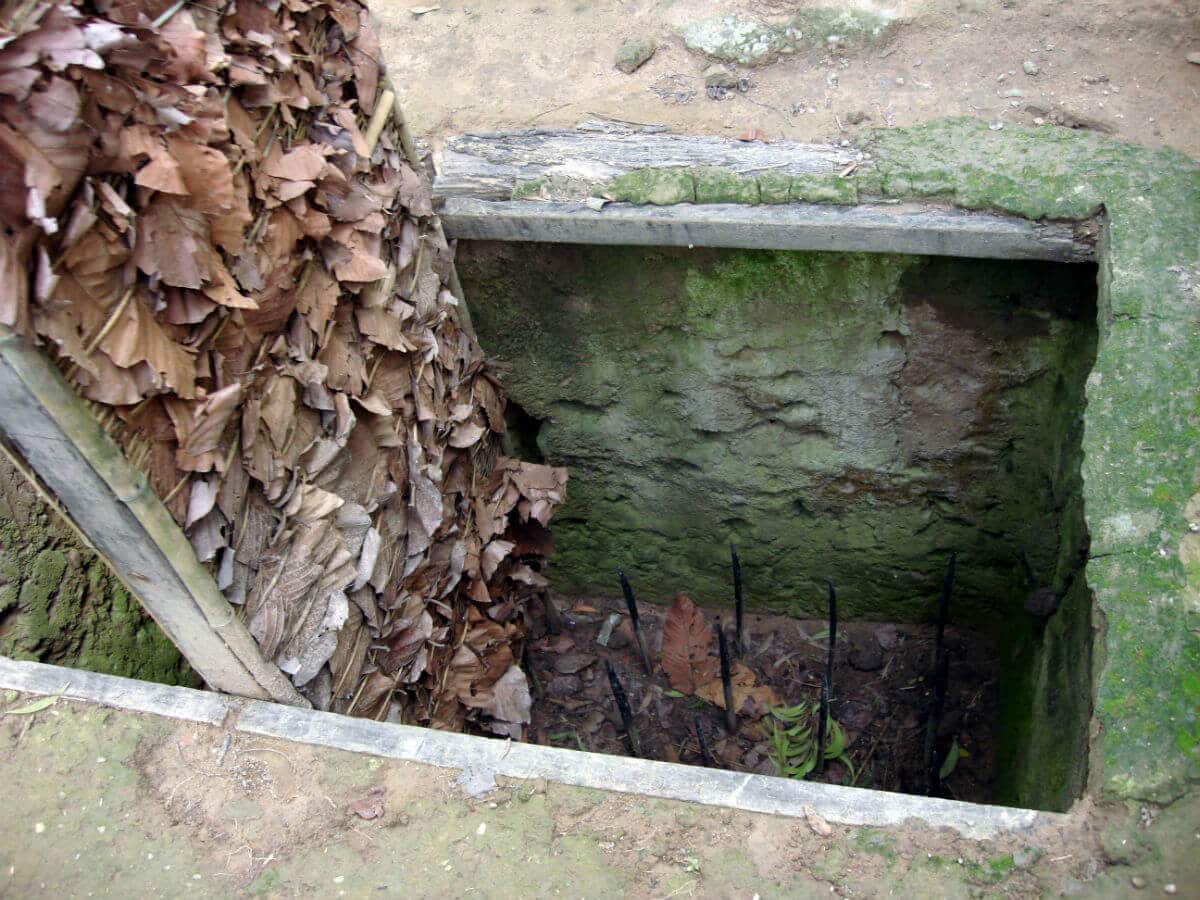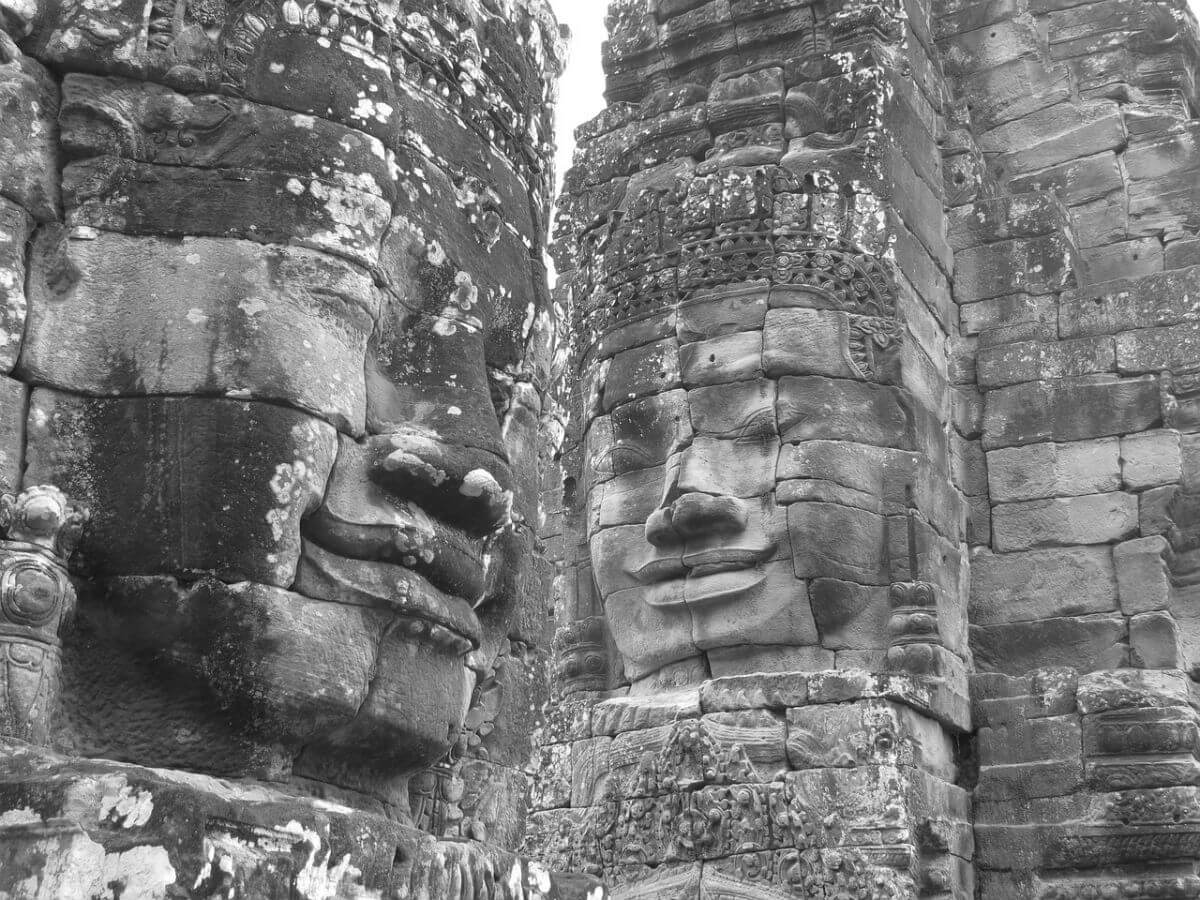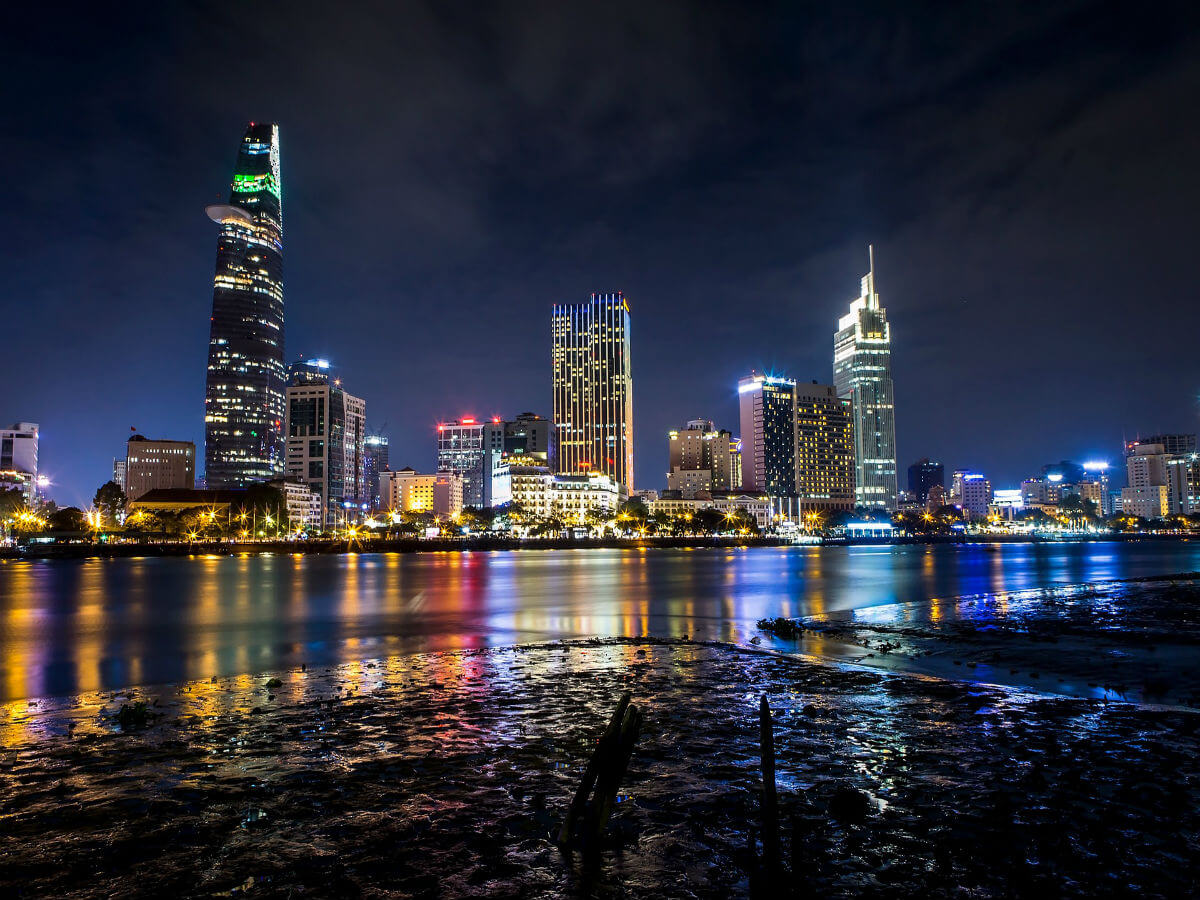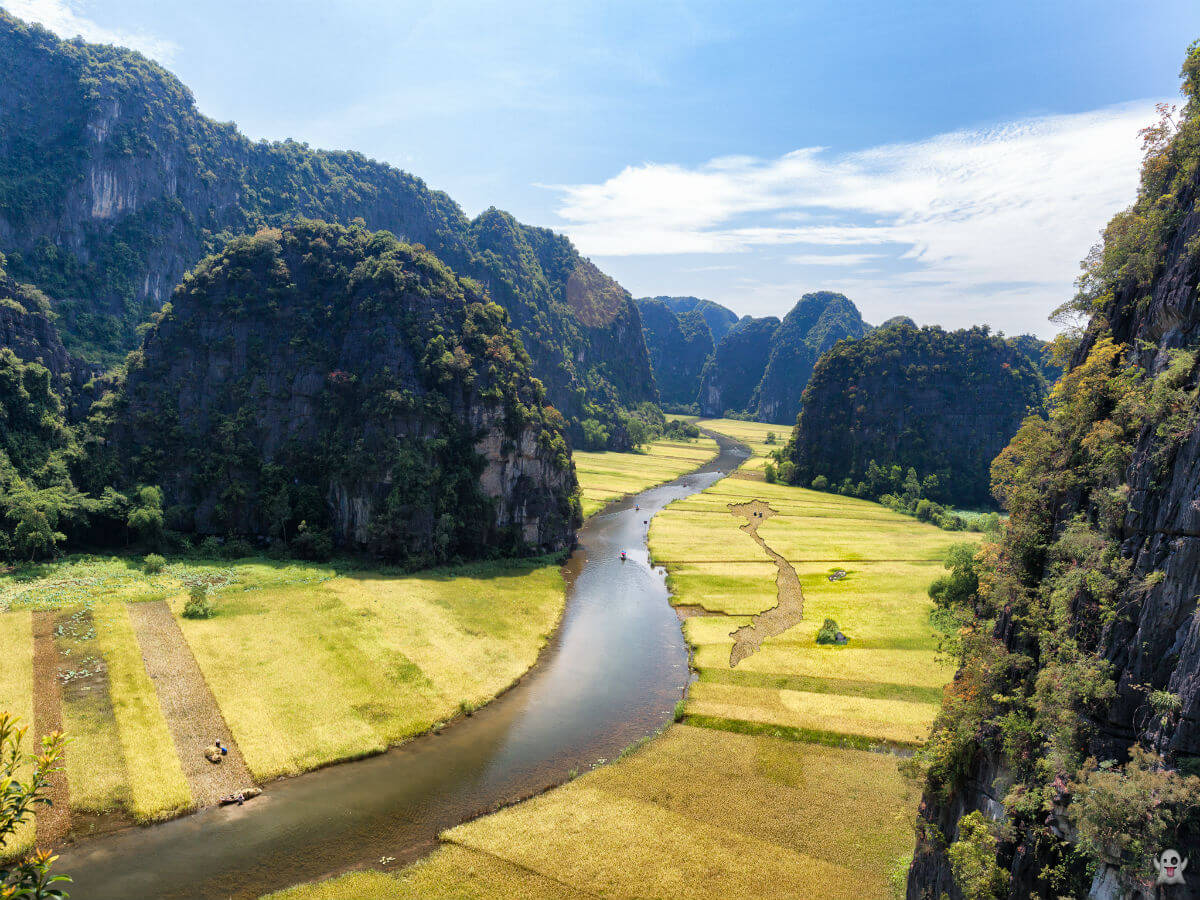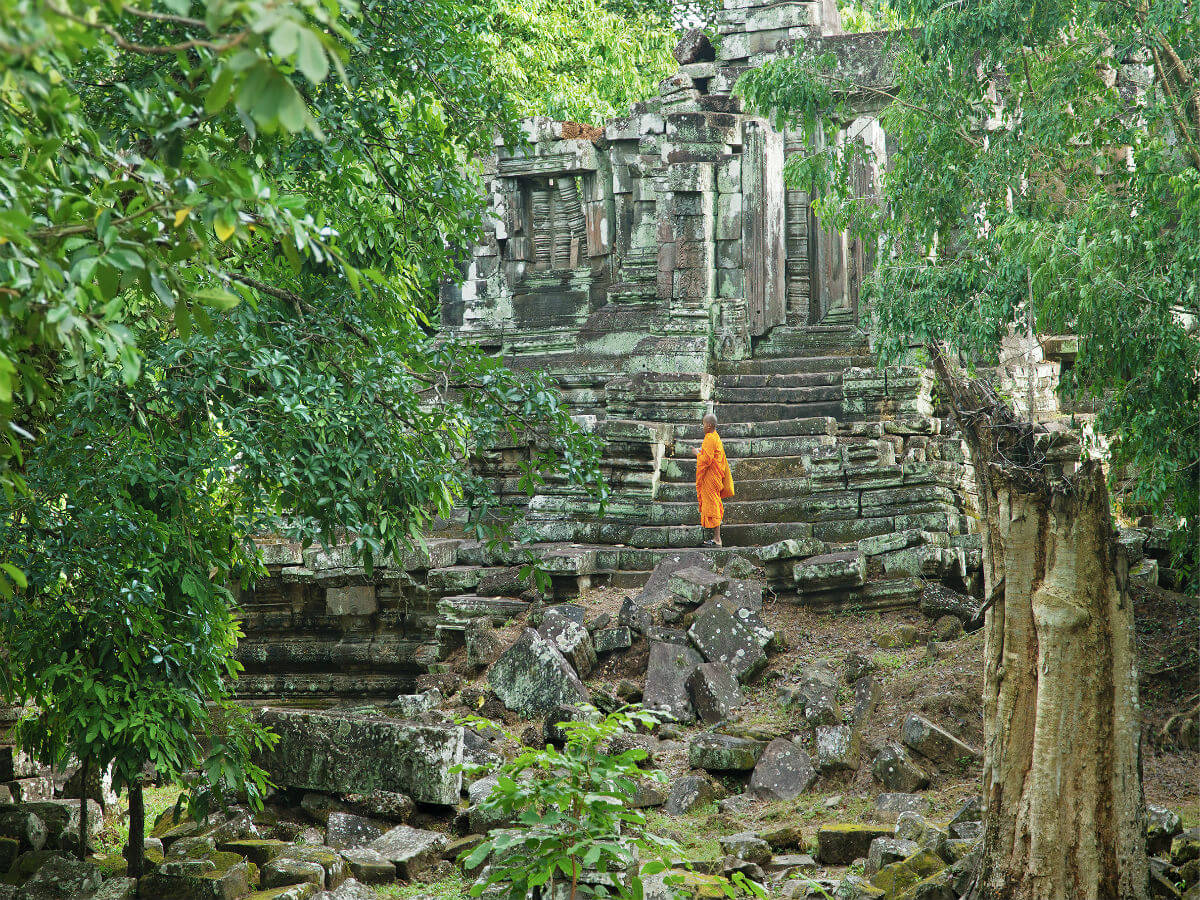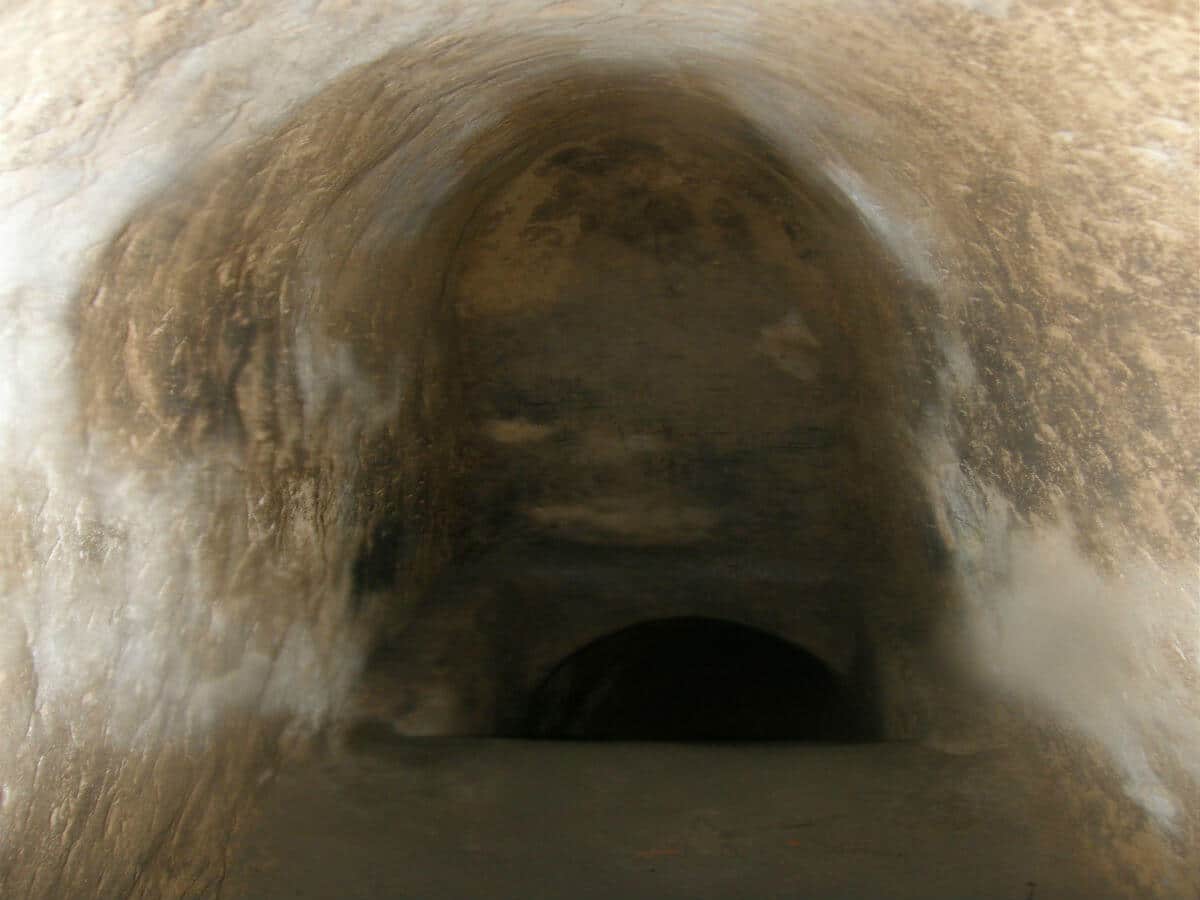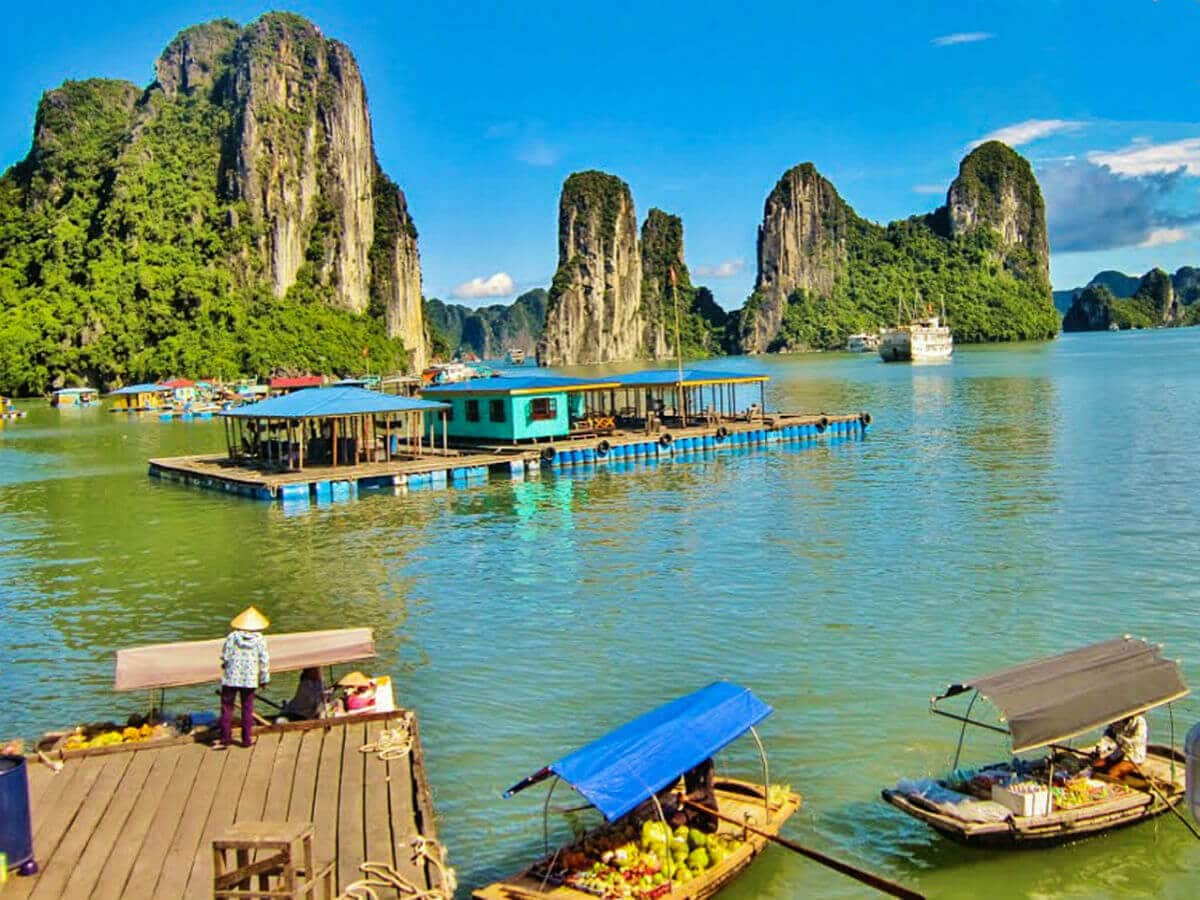Tour Packages
Vietnam Tour Packages
SUPER DEAL PRICE
STARTS FROM
per person on twin sharing

ATMs are readily accessible in all areas.

Credit Cards are widely accepted.

Finding a bank is hassle-free in Vietnam.

The legal drinking age in Vietnam is 18.

Vietnamese are friendly and known for hospitality.
Vietnam - Visitors Statistics
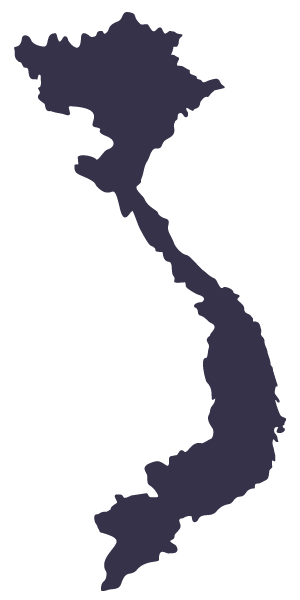
Annually
12,70,000
Male51%
Female49%
By Purpose
Couples
For Newlywed Vacations
Family
For Family Vacations
Top Visitors from India
Delhi
Mumbai
Bengaluru
Chennai
Kolkata
Hyderabad
Pune
Ahmedabad
Jaipur
Lucknow
All You Need to Know About Vietnam Tour
Known as the land of the ascending dragon, Vietnam continues to win the hearts of tourists with its delicious food, natural landscapes, friendly people, rich culture, and complex history.
Despite Vietnam’s recent tourism popularity, it still retains a certain mystical element that makes you want to explore every corner of this Southeast Asian country. You can do exactly that and so much more by booking one of our Vietnam tour packages.
With a plethora of aesthetic ingredients populating every inch of Vietnam, there is a change in the landscape as you move from north to south and beyond, and this eclectic quality is one of the numerous reasons why Vietnam should be on your must visit list.
Table of Content:
About Vietnam
Vietnam’s history goes back about 20,000 years. The Hoabinhians were the very first modern humans to arrive and settle in modern day Vietnam. The Red River served as a vital natural geographic and economic unit, connecting the western and northern regions through jungles and mountains, the southern area by the Red River Delta, and the eastern region by the sea.
The Cham of Central Vietnam revolted against the Chinese in 192 AD, which led to the creation of the independent kingdom of Champa. At the same time, the Chinese control loosened over the Red River Delta. This was around the period when Hinduism and Buddhism were introduced, causing Vietnam to become the first place in Southeast Asia to display the influences of Indian and Chinese cultures, thereby leading to the rise of the Indianised kingdoms of Funan and Champa.
Our Best Vietnam Tour Packages
| Vietnam Tour Packages | Duration | Highlights |
| Amazing Vietnam and Cambodia | 4 Nights 5 days | Boat cruising, Angkor Wat temple visit, exploring Terrace of the Elephants |
| Glimpses of Vietnam and Cambodia | 4 Nights 5 days | Boat cruising, Royal Palace complex visit, Vinh Trang Pagoda visit |
| Ancient Wonders | 4 Nights 5 days | Exploring Temple of Literature, Tam Coc boat ride, kayaking |
| Discover Vietnam and Cambodia | 9 Nights 10 Days | Kayaking, boat ride, Terrace of the Elephants visit, Cu Chi Tunnels visit |
| Dynamic Vietnam | 8 Nights 9 Days | Ngoc Son Temple visit, kayaking, Nguyen Hue Street exploration |
| Explore Vietnam and Cambodia | 6 Nights 7 Days | Exploring Temple of Literature, Vinh Trang Pagoda visit, Terrace of the Elephants visit. |
| Highlight of Vietnam | 6 Nights 7 Days | Kayaking, Vinh Trang Pagoda visit, Cu Chi Tunnels visit |
| Splendid Vietnam and Cambodia | 4 Nights 5 days | Visit to the Temple of Literature, cruise ride, Angkor Wat temple visit |
| Stunning Vietnam | 3 Nights 4 Days | Nguyen Hue Street exploration, Vinh Trang Pagoda visit, Cu Chi Tunnels visit |
| Wonderful Hanoi – Halong Bay | 3 Nights 4 Days | Visit to the Temple of Literature, kayaking, boat ride to Luon Cave |
Essential Tips To Know Before Travelling To Vietnam
- English is not widely spoken throughout Vietnam. Therefore, make sure to learn a couple of the local phrases and terms for important things like food, hotels, bathrooms, and so on.
- While ATMs are present in the modern parts of the country, they aren’t available in the smaller regions and remote areas. Hence, always carry cash with you and exchange it before your trip. Cash is especially preferred in smaller markets and other places that aren’t too touristy.
- Different regions in Vietnam present different weather conditions. While travelling from the northern to the southern part of the country, you will experience diverse weather situations. Therefore, pack your clothes accordingly.
- Although tipping is often expected in many places around the world, it isn’t anticipated or necessary in Vietnam. However, if you like the service at a particular place, you are always welcome to tip your server.
- Ensure you are dressed decently before entering a place of worship in Vietnam. Remember to leave your shoes outside before entering a temple.
- Get a local SIM card to save money on roaming charges while trying to call, text, and access the internet.
- Avoid drinking tap water in Vietnam as it could contain germs and lead to health problems.
- Even though Vietnam’s street food is too irresistible, inspect the hygiene and surroundings of the street food stalls before eating them so that you don’t compromise your health in the process.
- Never leave any of your belongings unattended.
Vietnam At A Glance
- Famous Tourist Attractions – Temple of Literature, War Remnants Museum, Cu Chi Tunnel
- Things To Do – Trekking, kayaking, whitewater rafting, mountain biking
- Famous Food – Pho, banh mi, cha ca, Cao Lau
- Places To Visit – Ho Chi Minh City, Hanoi, Hoi An, Nha Trang
- Souvenirs To Buy – Vietnamese coffee, lacquerware, woven handicrafts, Vietnamese paintings
Tidbits For Infographics
- Currency – Vietnamese dong
- Capital City – Hanoi
- National Animal – Water buffalo
- Official language – Vietnamese
Top Reasons To Visit Vietnam
Thinking of a reason to finalise one of our fantastic Vietnam tour packages? Let us give you multiple reasons why you should pack your bags for a holiday to Vietnam right away:
Scrumptious food
From noodles, soups, and dumplings to seafood, cakes, and rice rolls, Vietnamese cuisine will leave you spoiled for choice. If you’re accustomed to the spicy and savoury flavours found in Indian cooking, then multiple dishes in Vietnam will satisfy both your heart and your stomach with their zingy quality.
Delicious coffee
In Vietnam, coffee is not just a beverage; it’s an emotion and a valued tradition. As the world’s second largest exporter of coffee, you can imagine just how delicious the coffee is in the country. If you can’t go a day without your cup of coffee, then your vacation days in Vietnam are bound to get even more alluring.
Warm people
Who wouldn’t want to visit a place with friendly, warm, hardworking, and pleasant people? That’s Vietnam for you. Despite the language barrier that could exist, the people of Vietnam attempt their best to communicate with you through their smiles and body language. Friends and family mean a lot to them, which is part of their hospitality and endearing nature.
Cultural diversity
Vietnam has multiple ethnicities coexisting within the country. Perhaps this potpourri of cultures and traditions is what allows Vietnam to embrace people from all over the world and include themselves in one of the safest places you will ever visit.
Spellbinding natural landscapes
Vietnam’s natural landscapes are so astonishingly eclectic that it will take you a while to believe that you haven’t stepped into a dream of your own making. Mountains, plateaus, rivers, lakes, dunes, islands—Vietnam has it all and is waiting for you to discover it through our Vietnam tour packages.
Adventurous activities
Vacations are the perfect time to let your adventurous self out in the open, and Vietnam provides many opportunities to do so. Whether you go kayaking, trekking, hiking, diving, or rock climbing, you will never run out of adventurous activities to participate in while in Vietnam.
Affordability
We all have different budgets for our holidays, and if you’re looking for an international vacation from India that won’t break the bank, Vietnam is the destination to pick. It allows you to indulge in the best activities and food while being extremely affordable.
Best Time To Visit Vietnam
Before booking one of our Vietnam tour packages, you will obviously want to research the best time to visit Vietnam so you can plan your trip based on the activities you enjoy and the events you’d like to witness. Since Vietnam has a tropical monsoon climate much like India the country experiences southwest and northeast monsoons.
Each part of Vietnam has varying temperatures at different times, which is why the country is ideal for visiting throughout the year. However, spring and autumn are considered to be the best seasons to visit Vietnam. Let us walk you through what each season entails so you can decide accordingly.
Spring In Vietnam (February To April)
Southern Vietnam remains humid and sweltering during spring, with temperatures fluctuating between 20 and 30 degrees Celsius and often reaching 40 degrees Celsius by March. Central Vietnam remains cooler during this time and has the same temperature as the southern region.
Northern Vietnam gets pretty cold during the spring season, with temperatures as low as 10 degrees Celsius and occasional rains. Therefore, do pack warm clothes if you’re planning to visit the northern side of the country at this time. The Vietnamese New Year, known as the Tet Festival, occurs during this period. This is the perfect season to visit Vietnam’s beaches and islands.
Summer In Vietnam (May To August)
While southern and central Vietnam can reach 40 degrees Celsius during the summer, northern Vietnam and Hanoi can reach a maximum of 30 degrees Celsius. As this is the hottest and wettest season in the country, you can expect to encounter lush greenery while experiencing a heat wave.
Summer is when travellers can catch the Ghost Festival in Vietnam and plan to journey up to the northern hills. Since rain and heat are both present during Vietnamese summers, it’s better to always carry some light and waterproof rain gear with you.
Autumn In Vietnam (September To November)
The average temperature in Vietnam during autumn is between 20 to 25 degrees Celsius. Southern Vietnam remains humid, northern Vietnam gets quite cold, and central Vietnam experiences peak rainy season at this time. This is the ideal season to explore the southern part of the country as the temperature remains quite pleasant.
Those who enjoy hiking must travel to Vietnam during the fall. This is also when you can catch the National Day and the Ooc Om Boc festival. Make sure to pack some warm clothes if you’re planning to climb up higher altitudes.
Winter In Vietnam (December To February)
When winter comes around, the temperature throughout the country ranges between 20 degrees and 26 degrees Celsius. The weather remains dry, with barely any rainfall in the southern and northern regions. Some areas in the far north experience rainfall and a bit of snow.
Pack warm clothes in your luggage as the temperatures drop during this time. Carry some light clothes if you wish to explore the places around Hanoi.
Top Things To Do In Vietnam
Vietnam is a destination that is supremely eclectic and diverse in terms of the activities it offers to tourists from all over the world. You will get to experience this for yourself when you explore Vietnam by selecting one of our Vietnam tour packages.
Whether you’re travelling with your family, your spouse, or all by yourself, there is no dearth of activities whatsoever in the beautiful country of Vietnam. Let us walk you through the many things you can add to your bucket list while meandering around Vietnam during your vacation.
Things To Do As A Family
Lantern making in Hoi An
Hoi An has several workshops that teach people how to make lanterns. Now, this sounds like a fun thing to learn with your family, doesn’t it? You are given the bamboo frames and then taught how to attach the fabric to them. You will get the chance to make your own souvenirs and gift your loved ones something handmade.
Shopping at the Cai Rang Floating Market
We bet you haven’t seen many floating markets. Get a chance to witness one in Vietnam through the Cai Rang Floating Market. Wake up early in the morning with your family to see the market brimming with fresh produce, and take your kids to see the food produced in the country.
Ride the Phu Quoc Cable Car
The Phu Quoc cable car route has been registered in the Guinness Book of World Records as the world’s longest nonstop three way cable car. Lasting for 15 minutes, it takes you from Phu Quoc Island to Hon Thom Island, during which you can see the clear blue waters and fishing villages.
Watch a water puppet show in Ho Chi Minh City
Are you a fan of puppet shows? If so, the entertaining water puppet show at the Golden Dragon Puppet Theatre in Ho Chi Minh City is an art form you and your family must experience together.
Go ice skating in Hanoi
Standing as a pretty piece of architecture, the Vincom Mega Mall Royal City in Hanoi has an ice skating rink that you can take your kids to for an evening of adventurous fun.
Embark on a Halong Bay cruise
Let nature engulf you in its beauty as you cruise along Halong Bay. Make sure to take pictures of the stunning rainforests and limestone islands around you.
Explore the Crazy House in Dalat
Have your kids always wanted to walk around a house whose architecture is like no other? One where staircases and walkways pop up almost out of nowhere? If so, then the Crazy House in Dalat is where you should take them. With its unique art installations and quirky design, it’s a touristy spot you and your family will remember for a long time.
Things To Do For Adventure Lovers
Trekking
Vietnam has some of the best trekking trails, providing options for beginners and experts alike. While trekking in Vietnam, you will undoubtedly encounter some waterfalls, snow covered peaks, and bewitching waterfalls. Some of the ones to note down are Central Highlands and Sapa.
Kayaking
Ha Long Bay, a UNESCO World Heritage Site, is the perfect place to kayak in Vietnam. With innumerable limestone islets and plenty of surrounding lagoons, kayaking in this region allows you to explore some secluded spots.
Canyoning
Imagine an adventurous activity that combines the thrill of hiking, swimming, abseiling, and climbing. That’s what canyoning is all about. This activity lets you see the jungles and many picturesque views in Vietnam, and Dalat is the place to go for this purpose.
Whitewater rafting
Swishing through Vietnam’s rivers and breathing in the lush landscapes? Sign us up! Between April and September is the best time to indulge in this activity in Vietnam, and several whitewater rafting tours depart from Dalat.
Zip lining
Zip lining is one of those loved adrenaline filled activities that is quite popular among tourists in Vietnam. The country offers varying difficulty levels to suit the different ranges of adventurers. The longest one to try in Vietnam is the one in Phong Nha-Ke Bang National Park in Quang Binh.
Mountain biking
The regions in Vietnam, with their eclectic landscapes and topography, ensure that travellers can engage in mountain biking. The ones to look into for this adventure include the Hoang Lien Son Mountain Range and Dalat.
Rock climbing
Vietnam’s popularity as a spot for rock climbing is ever increasing. Ha Long Bay is where most adventure lovers flock to, as there are climbing opportunities for all types of climbers.
Diving
Scuba diving is a great way to lose yourself in the breathtaking beauty of Vietnam’s underwater world. Nha Trang, Con Dao, and Phu Quoc are some places where you can try scuba diving.
Shopping In Vietnam
The character Carrie Bradshaw once rightly said, “I like my money right where I can see it: Hanging in my closet.” Fortunately for travellers, Vietnam is among those destinations perfect for shopaholics. It offers a variety of items to take back home with you, from souvenirs and handicrafts to affordable apparel and food products.
Your shopping loving heart will feel happier once you’re done perusing the country’s craft centres and local markets through our Vietnam tour packages. After all, it’s called retail ‘therapy’ for a reason, right? Here are some of the items you can check out during your shopping spree in Vietnam and the best places to shop in the country:
What To Buy
Ao Dai
Ao dai is the traditional Vietnamese costume for women, whose origin can be traced back to the 18th century. It’s a long, elegant, well fitted dress paired with stylish pants. It’s worn by women across all age groups, especially on special occasions such as Tet, the Vietnamese New Year celebration.
These are available at stores across the country, and if you have ample time, you can also get them custom made during your stay in Vietnam with our Vietnam tour packages.
Vietnamese Silk
Once upon a time, silk was regarded as a luxury only adorned by the elites and members of the royal family. As time passed, Vietnamese silk evolved to be included in the international market and became as popular as Indian and Chinese silk. These days, it also appears in global fashion shows as designer clothing.
Traditional villages in Vietnam still weave silk using conventional handlooms. Some of the best places to find Vietnamese silk are Hanoi’s Hang Gai Street and Van Phuc Silk Village.
Conical Hats
Conical hats, known as non la, were originally worn by Vietnamese farmers and have been associated with the country’s rice growing culture for ages. Available in numerous sizes and designs, they are usually made using straws, bamboo cataphylls, or palm leaves. They can be bought either from the villages in Vietnam or the local markets.
Vietnamese Coffee
Vietnamese coffee is omnipresent, whether at shopping malls, cafes, or local markets. When you roam around the country, you can grab some of these delicious souvenirs by booking one of GT Holidays’ Vietnam tour packages.
Vietnam’s coffee culture is arguably linked to the capital city of Hanoi, where bags of ground or whole Robusta beans are available at affordable prices.
Lacquerware
Lacquerware is a form of craftsmanship that is vividly present in Vietnam. Vietnamese artisans have been utilising lacquer to create unique items for centuries now. The art form is employed on objects such as bowls, dishes, paintings, vases, and furniture, and you can pick based on what suits your taste and aesthetic.
Woven Handicrafts
Ethnic handicraft products created by ethnic minorities in Vietnam are some of the best handmade goods you can take home from your trip. Many of these woven handicrafts can be found in the villages of Vietnam, allowing tourists to select from various scarves, backpacks, wallets, purses, clothes, and textiles.
If you want to discuss these handicrafts with the artists who make them, you can ask your guide to help you learn more about this intricate art form.
Vietnamese Paintings
French influence leaked into Vietnamese art during the 19th and 20th centuries, and the remnants of this influence are still visible in Vietnamese paintings that are renowned worldwide for their technique and colours.
The paintings depict moments of life in Vietnam, including lifestyle, festivals, and the country’s natural beauty. Different materials, including silk, oil, and sand, are used to bring these paintings to life. These paintings, with their simple subjects and bright hues, serve as the perfect decoration piece for your home.
Where To Shop
- Street Night Market (Hanoi): For accessories, textiles, and traditional artworks.
- Dong Xuan Market (Hanoi): For handbags, accessories, electronics, traditional Vietnamese clothing, fresh produce, and local handicrafts.
- Ben Thanh Market (Ho Chi Minh City): For Vietnamese coffee, spices, handicrafts, accessories, and clothes.
- Binh Tay Market (Ho Chi Minh City): For clothes, footwear, fresh produce, handicrafts, and lacquerware.
- An Dong Market (Ho Chi Minh City): For fabrics, ceramics, woodwork items, handicrafts, coasters, and dried foods.
- Cai Rang Floating Market (Can Tho): For fresh produce, handicrafts, and regional delicacies.
- Bat Trang Pottery Village (Hanoi): For pottery, ceramics, and trinkets.
- Dong Ba Market (Hue): For clothes, food items, conical hats, and traditional attires.
Things To Remember When Shopping In Vietnam
- Once you land in the country, make sure to exchange the currency with Vietnamese Dong. Plan this currency exchange in advance so you can begin your shopping experience in Vietnam stress free.
- Get ready to bargain. The items found in the street markets are often quoted more for tourists. So, you must haggle and bargain, which the shopkeepers expect the travellers to do as well. At the end of the bargain, you can expect to pay anywhere between 60% and 70% of what the shopkeeper had initially quoted.
- Since bargaining can often be intense, remember to stay calm, smile, and enjoy the moment. Most importantly, be respectful and know when to stop, especially when it’s just a couple of cents.
- Learn some of the easy and basic Vietnamese phrases so it becomes easier to bargain and have conversations at the local markets.
- Whether you’re purchasing handicrafts, silk, or any other item, remember to check the quality before making the payment.
- Certain countries have customs restrictions, especially on animal and agricultural items. Therefore, check your country’s customs rules before buying anything.
Foods To Try Out In Vietnam
Do you belong to the category of people who would literally fly for delicious food? If your answer is a resounding yes, then Vietnam is sure to win you over. With its fresh ingredients, exotic flavours, unique textures, and colourful exteriors, Vietnamese dishes feel like a burst of spices and succulence in your mouth.
Be it fine dining or roadside stalls, there isn’t a single corner of Vietnam that doesn’t offer scrumptious meals to its residents and tourists, all of which you can relish through our Vietnam tour packages. Every region in the country brings in something new for your taste buds. While northern Vietnam is more inclined towards elegance and simplicity, southern Vietnam is prone towards sugary goodness. For the ones who are always on the hunt for spice and zest in their meals, central Vietnam should be on your itinerary. It’s the spicy element which makes Vietnamese food so enticing to Indians as well.
Let’s explore some of the various kinds of foods that you absolutely must try in Vietnam when you book your vacation using our Vietnam tour packages:
Pho
We all know this list would be incomplete without mentioning pho, right? After all, it happens to be among the most loved and well known traditional Vietnamese dishes. Pho is a comforting noodle soup made with rice noodles, broth, herbs, and sliced meat such as chicken or beef. The broth is made with spices like ginger, cinnamon, and star anise, which give the soup a distinct fragrance and flavour.
Originating in the northern part of the country, it was initially consumed by commoners who resided close to the Red River before it appeared at diners in the early 20th century. This dish’s versatility allows food lovers to consume it at any time of the day, and it is a common breakfast item in the country.
Banh Mi
Banh mi is a delightful combination of Vietnamese and French cuisine as it’s a sandwich where the bread is a baguette, which is a long and thin French loaf. The filling of this famous sandwich consists of pickled vegetables, butter, cheese, chilli sauce, cold cuts, fresh cilantro, and fried eggs.
While Hanoi usually presents a simpler version of banh mi, it tends to be filled with more sauces in Ho Chi Minh City. The sandwich is easily found at numerous bakeries and street food stalls all over the country and is eaten both as a snack and as a quick meal.
Goi Cuon
Do you love to order spring rolls whenever you have Chinese food? If so, you must try goi cuon, Vietnamese spring rolls.
These healthy appetisers have a translucent exterior created using softened rice paper sheets. Their filling consists of vermicelli, fresh vegetables, tofu, pork, or shrimp. These spring rolls are usually served with a nutty and rich peanut dipping sauce.
Banh Xeo
You may have had crepes and pancakes before, but have you ever had one filled with pork, shrimp, onions, herbs, and bean sprouts? Well, if you haven’t, you can try out these Vietnamese crepes while exploring the country with our Vietnam tour packages.
This dish’s batter includes water, coconut cream, turmeric, and rice flour. Once it’s cooked, its outer appearance is almost that of an omelette. After being wrapped in lettuce leaves, it is often served with a special fish sauce.
Mi Quang
Originating in Central Vietnam, mi quang is a noodle soup made of rice noodles, herbs, pork broth, and some form of protein, such as pork, beef, shrimp, or fish. It is topped with rice crackers, an egg, and peanuts.
The aromatic and spicy taste of the broth is developed using pork bones, chillies, and turmeric. There are multiple variations of this dish found throughout Vietnam, including those with quail eggs and sucking snails. You can find numerous toppings on this noodle soup, such as coriander, lettuce, scallions, and mustard greens.
Cha Ca
Seafood lovers should keep cha ca on their list of must try Vietnamese dishes. This grilled fish delicacy is so popular that a street was named after it. The people of Vietnam aren’t surprised, as its history is deeply rooted in Vietnamese culinary heritage, dating back over 100 years.
This dish uses catfish, which is marinated in a sauce made using garlic, turmeric, shrimp paste, dill, ginger, and chilli. Once the fish is grilled, it is served with vermicelli noodles, herbs, and peanuts.
Cao Lau
The Vietnamese noodle dish cao lau originated in Hoi An, a city in central Vietnam. It is a mix of local, Japanese, and Chinese cuisine. Reputed to be one of the most famous dishes of Vietnam, the name of the dish means ‘high storey’, which could be related to the explanation that it was exclusively served to the upper class, who often dined on the upper floors back in the 17th century.
This dish, topped with crispy wonton style crackers, consists of thick noodles, herbs, bean sprouts, and roasted pork. Usually served with lime wedges or chilli sauce, cao lau can be found in restaurants, street food stalls, and markets across the country. The herbs added to the noodle soup, such as Vietnamese fish mint, coriander, and basil, enhance the taste of the broth.
Bun Cha
Hanoi was the city that led to the inception of bun cha, a traditional Vietnamese pork dish. Consisting of a foundation of fresh rice noodles over which the grilled pork patties are served, the dish also includes a variety of herbs and a tangy dipping sauce on the side.
The pork patties are juicy inside and crispy outside, perfectly contrasting with the sauce, which combines lime juice, chilli, sugar, vinegar, and fish sauce. Bun cha also comes with a side of pickled vegetables. While it’s famous as a lunch dish, it is also consumed during dinners.
Art And Culture In Vietnam
Religions
Vietnam has three major religions: Buddhism, Taoism, and Confucianism. Smaller religious groups, such as Muslims and Christians, are also present in the country, and some Hindu temples are also present.
Languages
The primary language spoken in Vietnam is Vietnamese. A couple of other languages show their influence on the country’s primary language, such as Chinese, French, Russian, and English. The numerous ethnic groups present in the country speak languages such as Khmer, Tay, Cham, and Muong. The more urban parts of Vietnam are where English is spoken abundantly, making it easier for tourists to travel around these regions.
Art forms
Silk painting is a captivating form of art prevalent across Vietnam. While silk painting can be found in various Asian countries such as China and Japan, certain elements set Vietnamese silk paintings apart, such as the liberal use of colours and French influences.
Calligraphy is yet another art form that is an integral part of Vietnam’s culture, even though it was preserved mainly for the elite in the past. Although it was practised in three different scripts, Quoc-ngu, Chu Nom, and Chinese, modern calligraphy only employs the Quoc-ngu script.
When it comes to Vietnamese folk art, Dong Ho painting is a treasured part of Vietnam’s culture. Woodblock paintings are created using pieces of wood cut into intricate designs and organic paints applied. Lately, woodblock paintings have become popular outside Vietnam as well. Such paintings are often purchased during the Lunar New Year, and the themes include daily life, beloved stories, and positive omens.
Performing arts
Dance is a vital part of Vietnam’s culture, with traditional dances performed in opera houses, theatres, and during festivals. The Vietnamese lion dance is often performed for festivals and includes acrobatics and martial arts. There is also the Lantern Dance, Lotus Dance, Ribbon Dance, and fan dance, and you can surely experience one or many of these dance forms during your trip with our Vietnam tour packages.
Music was essential to Vietnam’s Nguyen Dynasty, during which royal court music was performed and enjoyed. Vietnam has about 50 national musical instruments, including wind, percussion, and string instruments, which are also used in other art forms. Three primary kinds of music exist in Vietnam: folk music, imperial music, and Ca Tru, a type of chamber music recognised by UNESCO and included in the List of Intangible Cultural Heritage in Need of Urgent Safeguarding.
Vietnamese martial arts are also part of the country’s culture of performing arts. Although influenced by Chinese martial arts, they have a distinct style of their own.
View All Vietnam Packages
Top Attractions
Explore diverse global destinations, each boasting unique attractions and experiences. From bustling urban centers to serene natural landscapes, these popular destinations cater to a variety of interests. Whether it’s cultural immersion, adventure or relaxation, there’s a destination for every traveller to discover and enjoy.
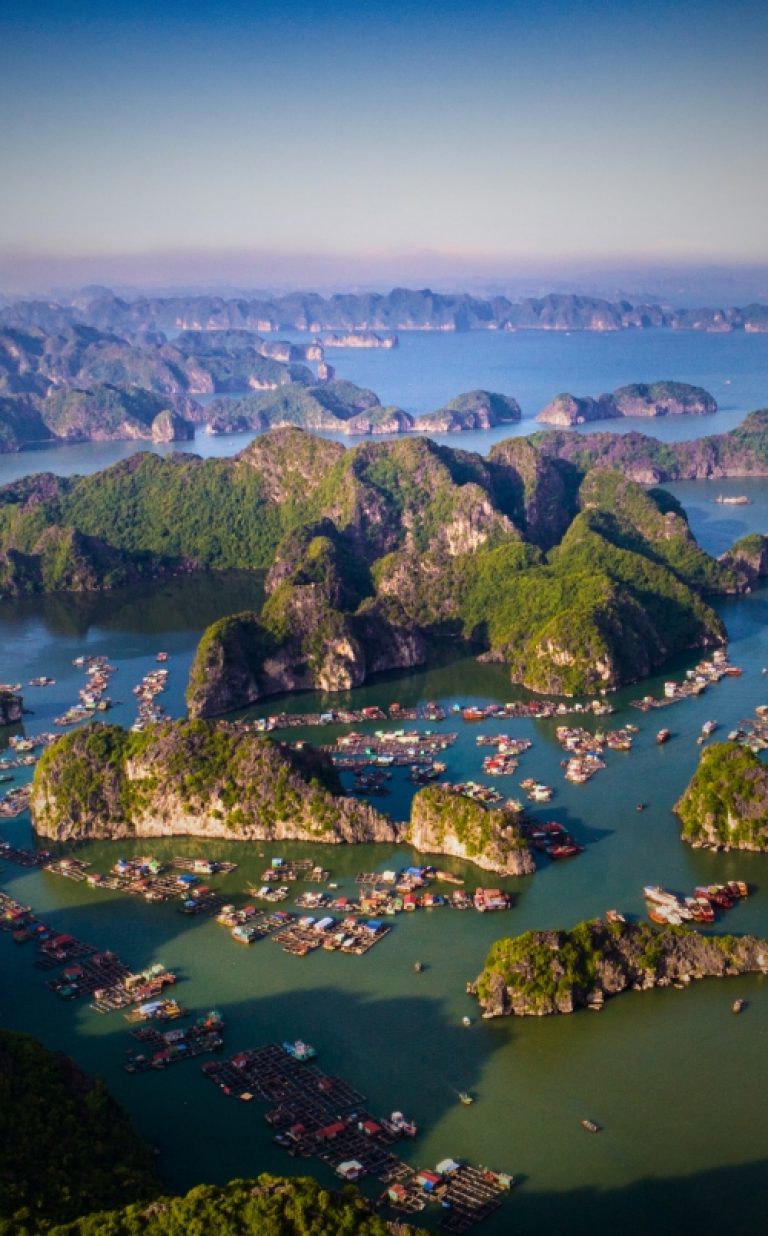
Ha Long Bay
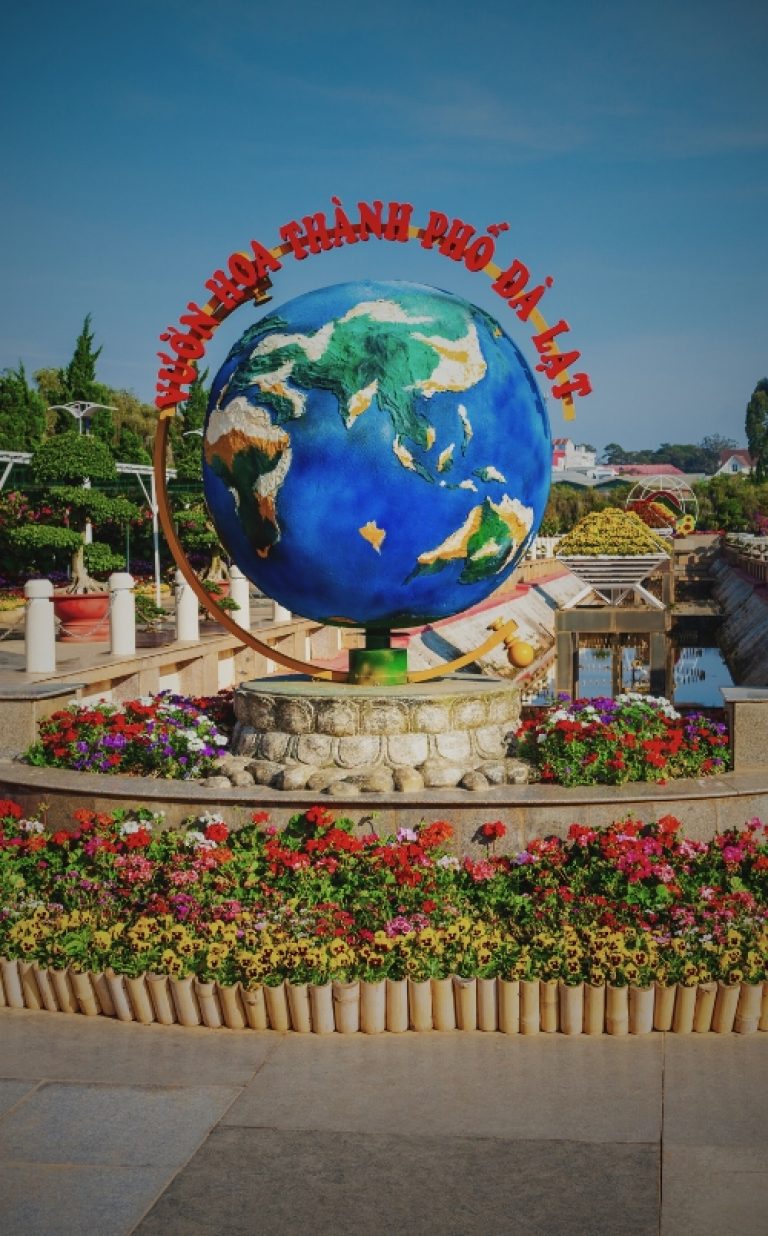
Dalat
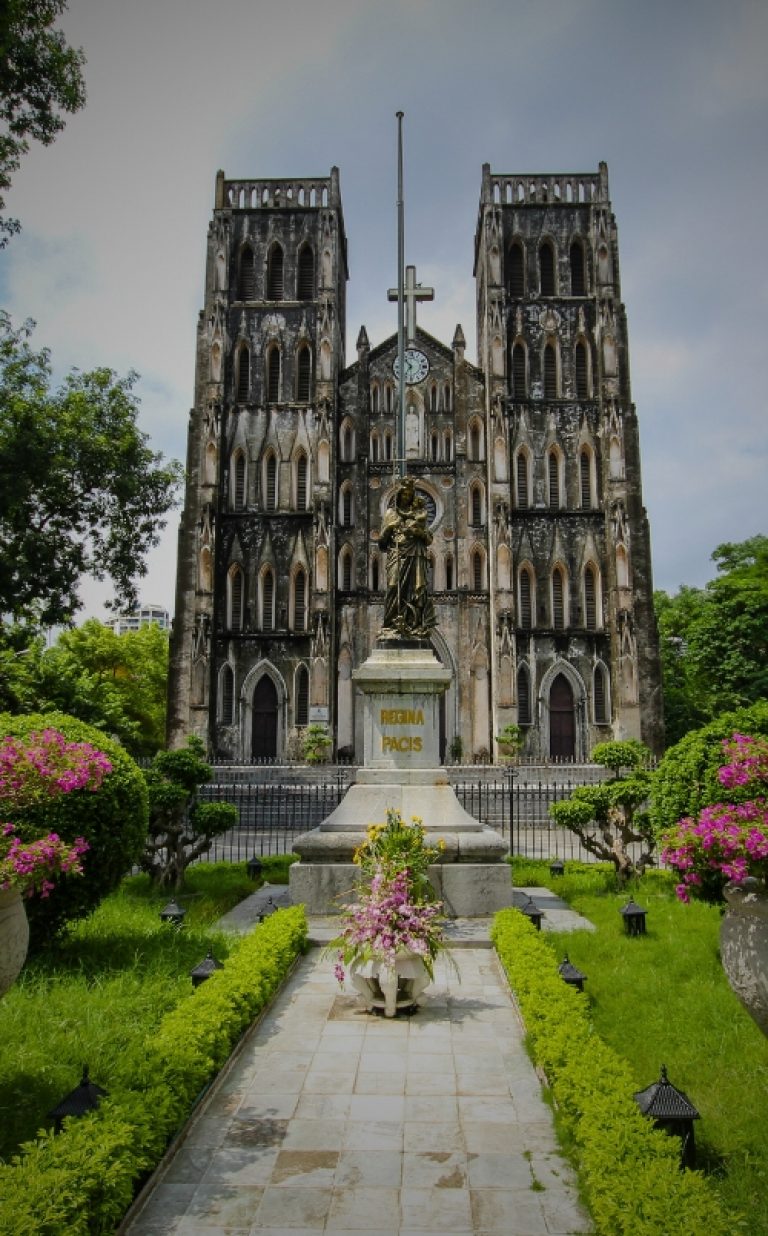
Hanoi
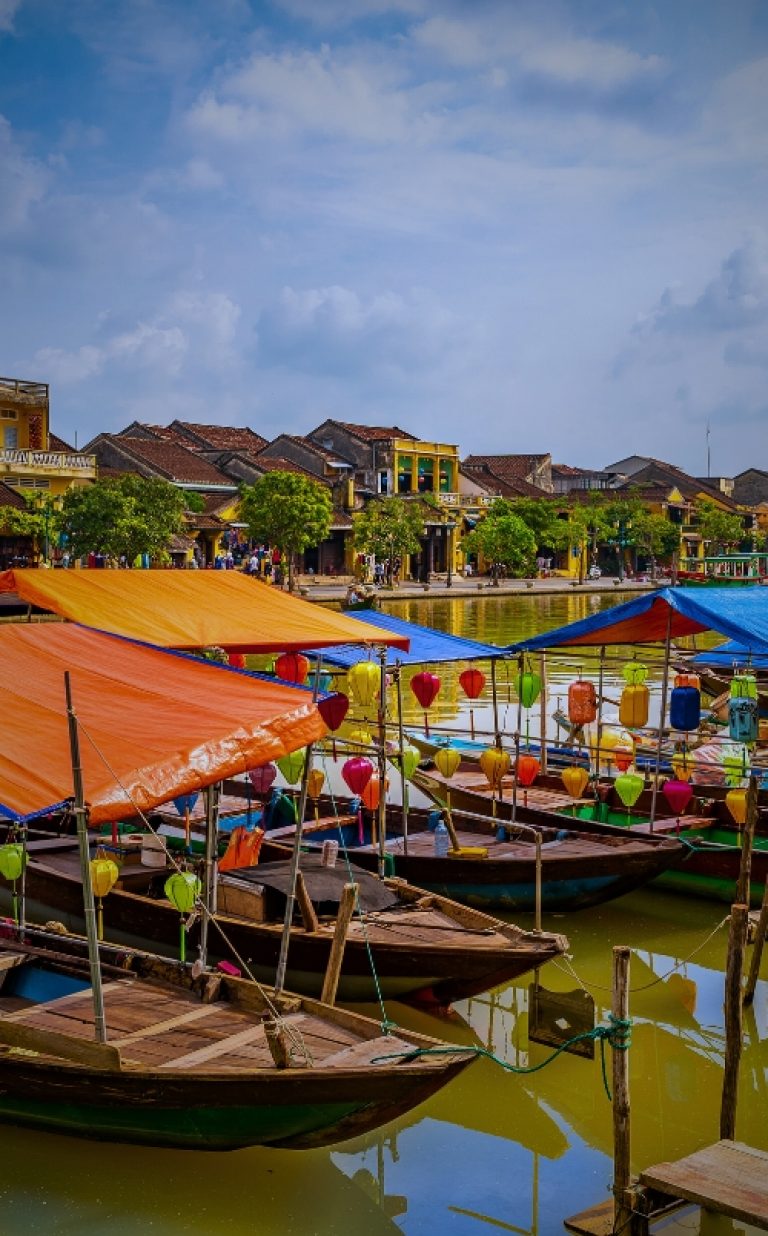
Hoi An Ancient Town
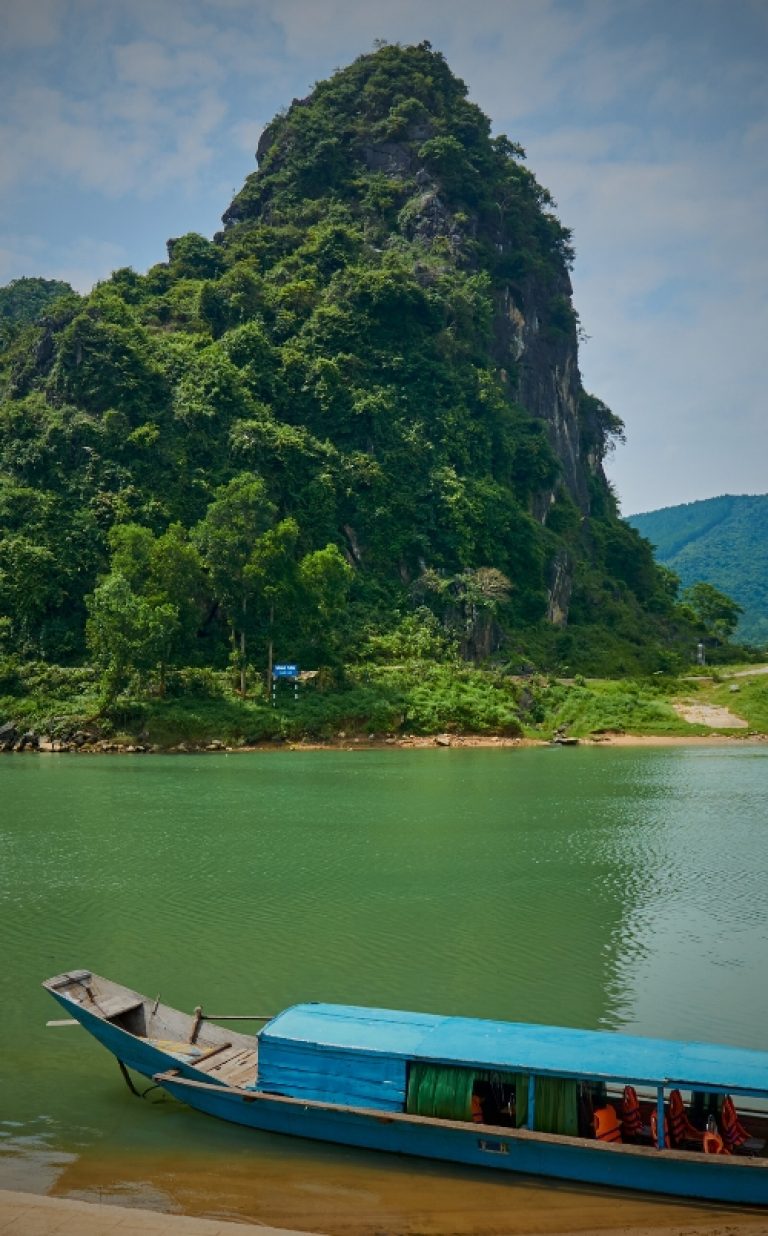
Phong Nha Ke Bang National Park
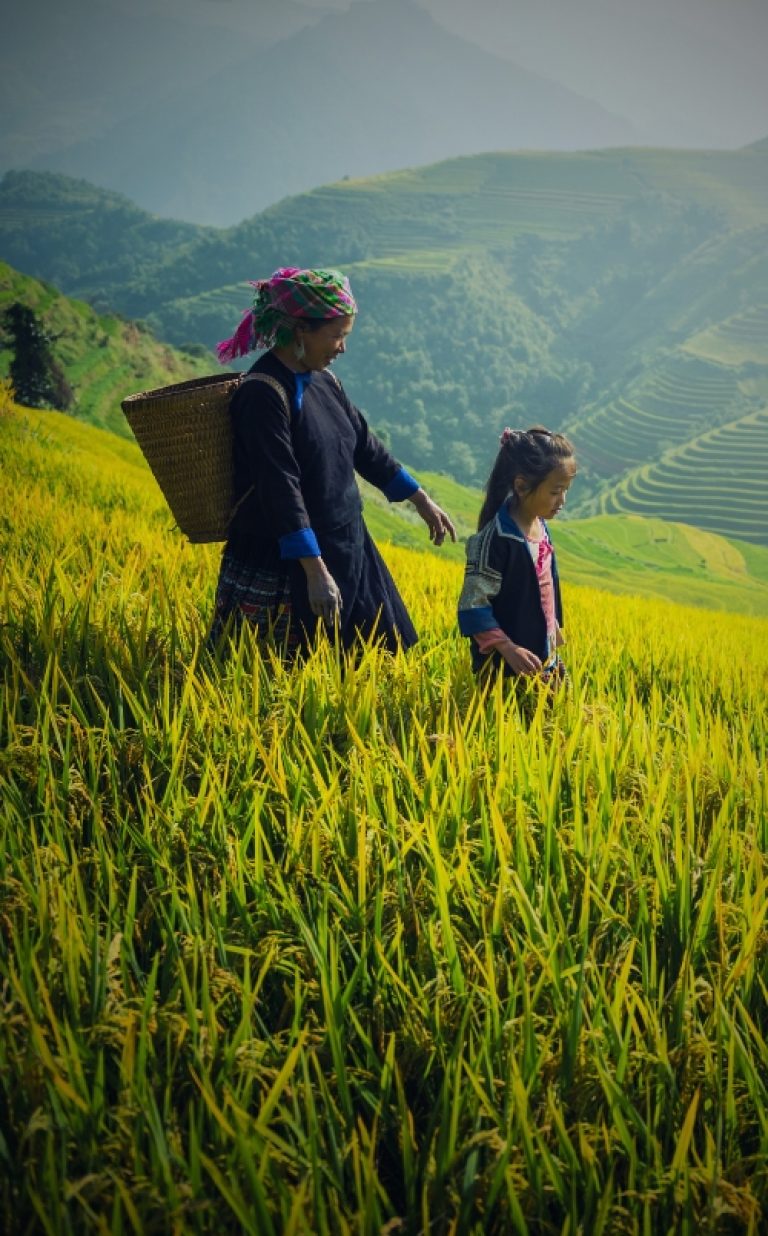
Sapa
Unique Wildlife
Encounter a kaleidoscope of unique wildlife worldwide, marveling at the extraordinary adaptations and behaviors that define each species. From the smallest insects to the largest mammals, Earth’s diverse ecosystems house an array of fascinating creatures, contributing to the intricate tapestry of life on our planet.

Saola

Vietnamese Mossy Frog

Vietnamese Pond Turtle

Indochinese Tiger
Cultural Experiences
Embark on a journey of cultural richness, immersing yourself in the vibrant tapestry of traditions, arts, and customs across the globe. Whether savoring local delicacies, partaking in ancient rituals, or enjoying traditional performances, these cultural experiences offer a profound understanding of the world’s diversity, fostering connection and appreciation.
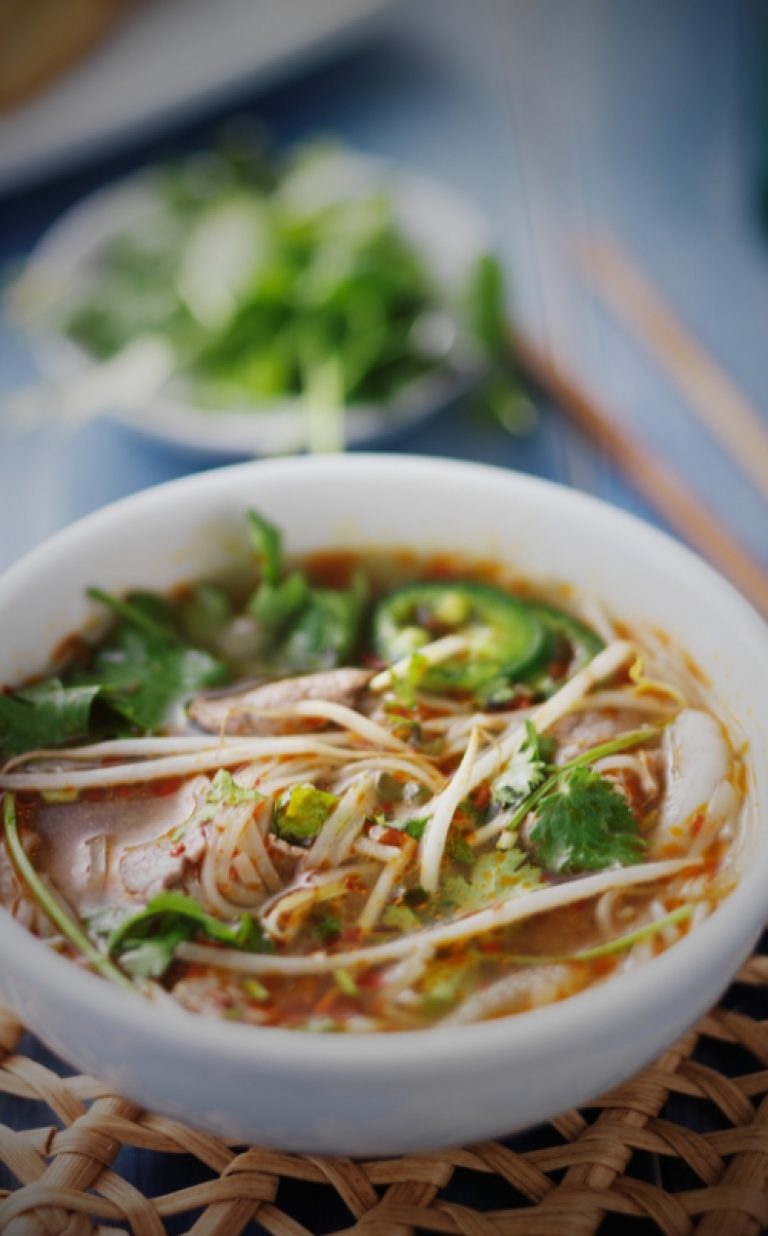
Traditional Vietnamese Cuisine
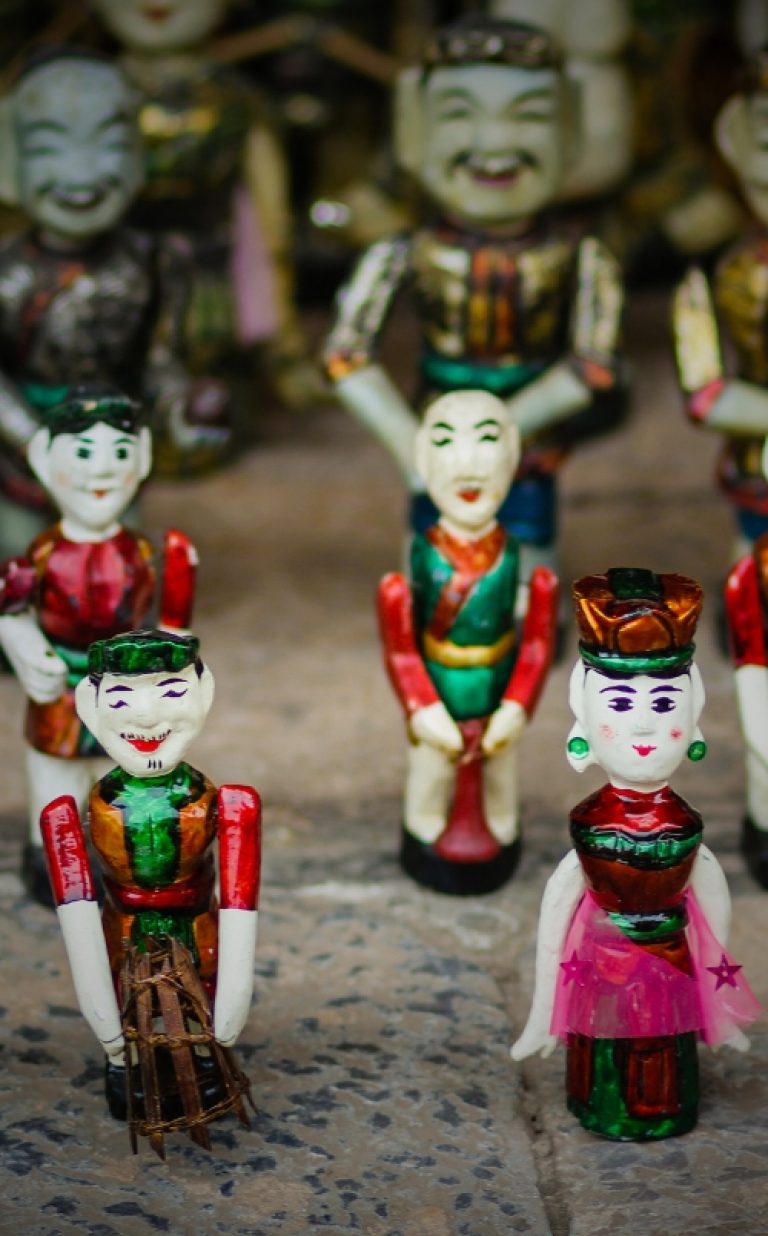
Water Puppetry
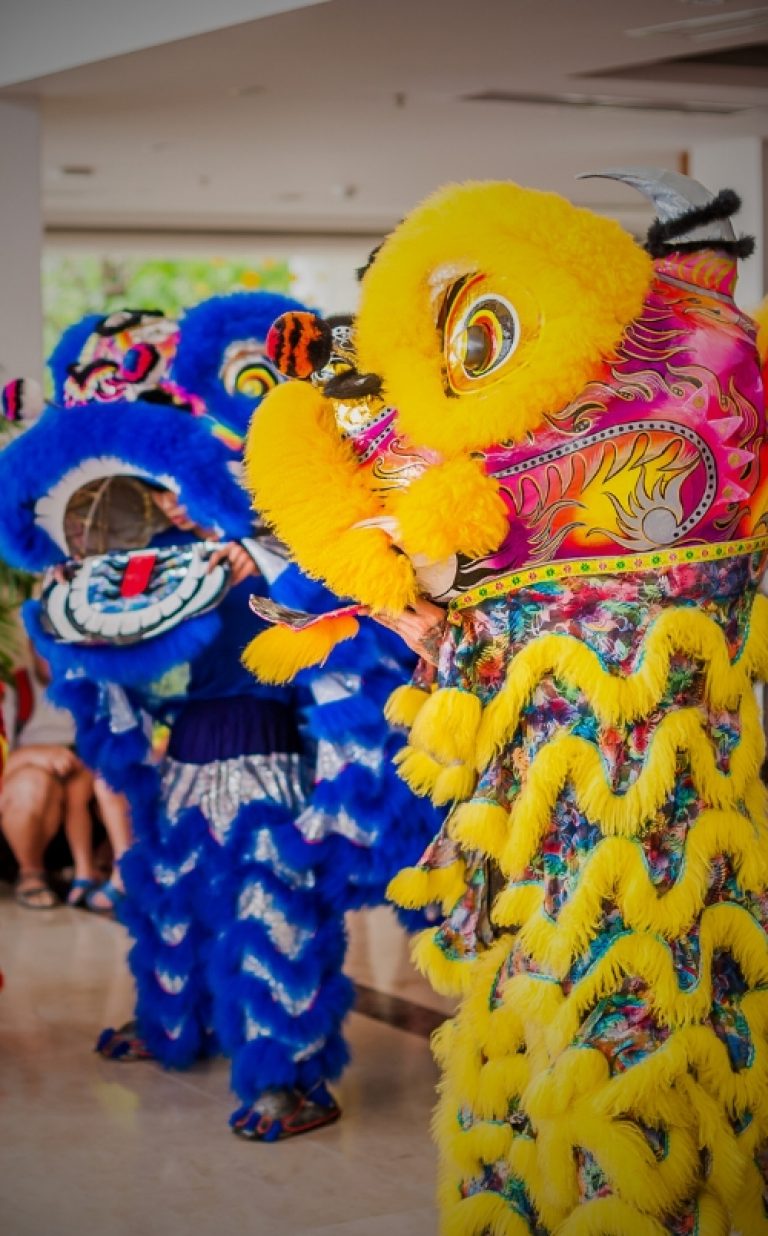
Vietnamese Festival
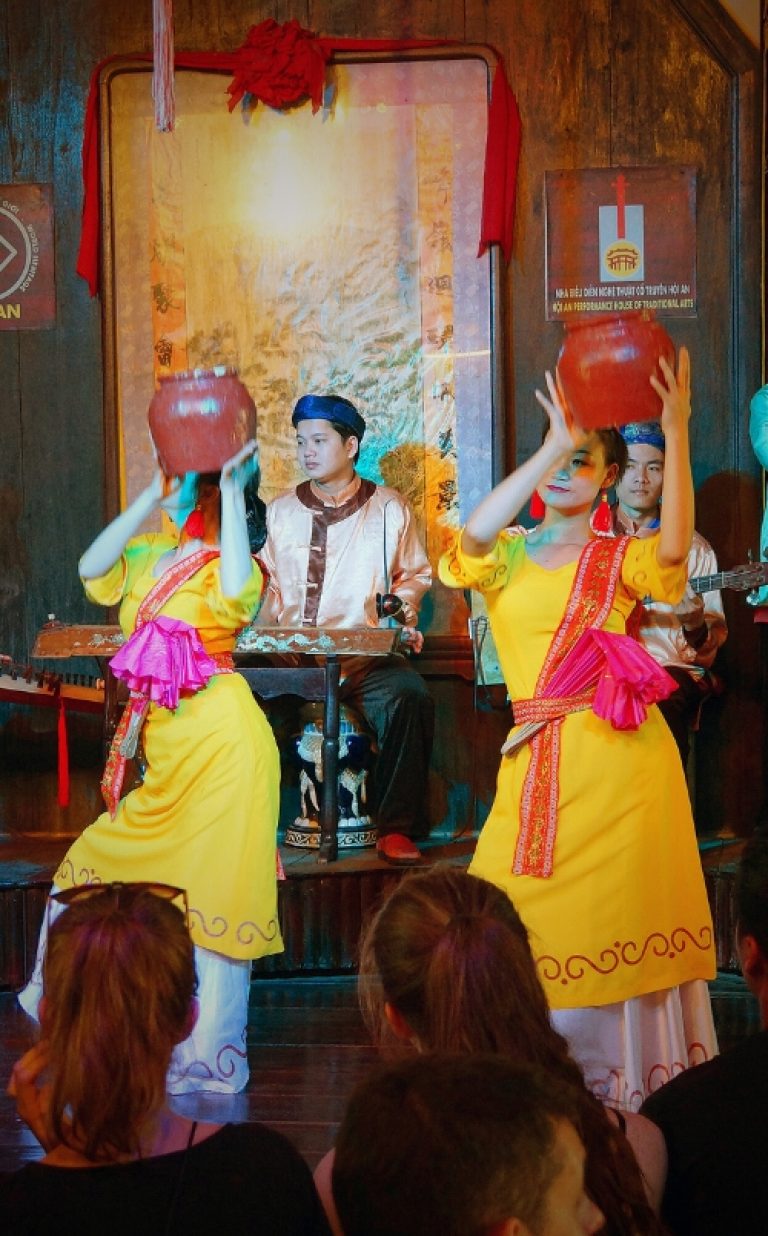
Music and Dance in Vietnam
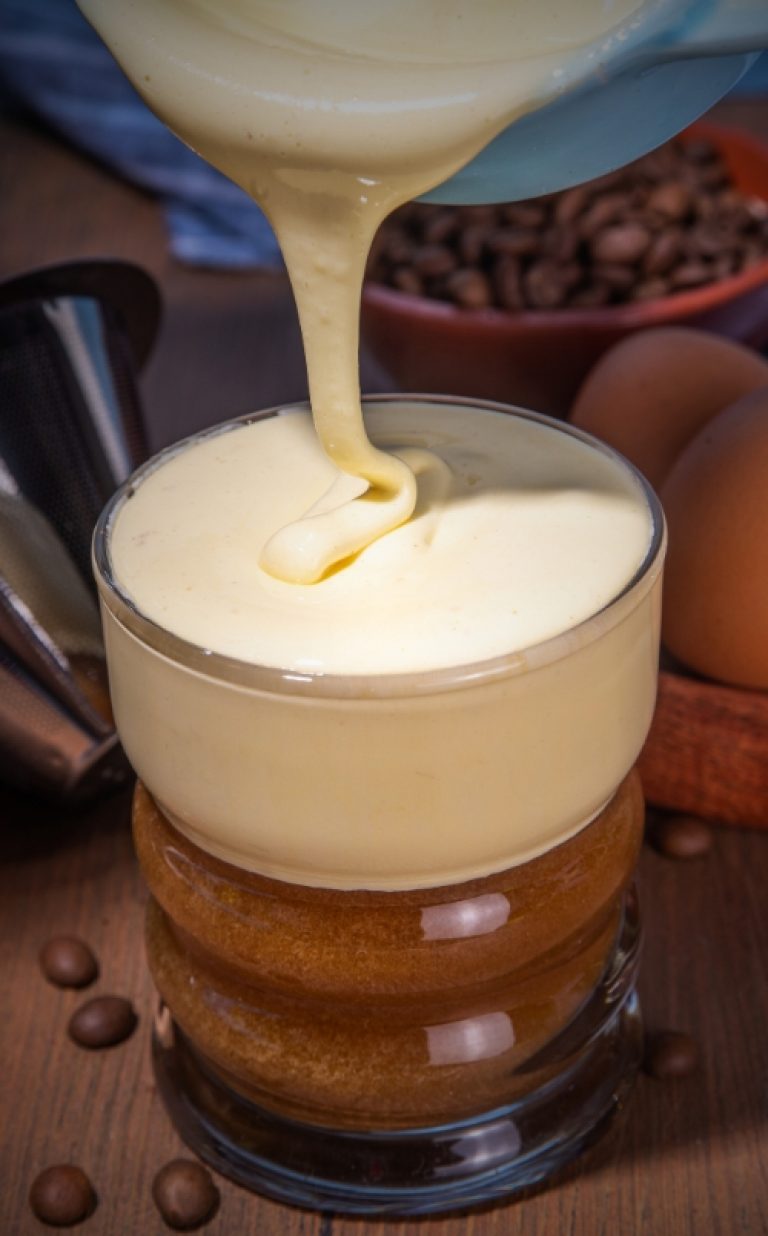
Vietnamese Coffee
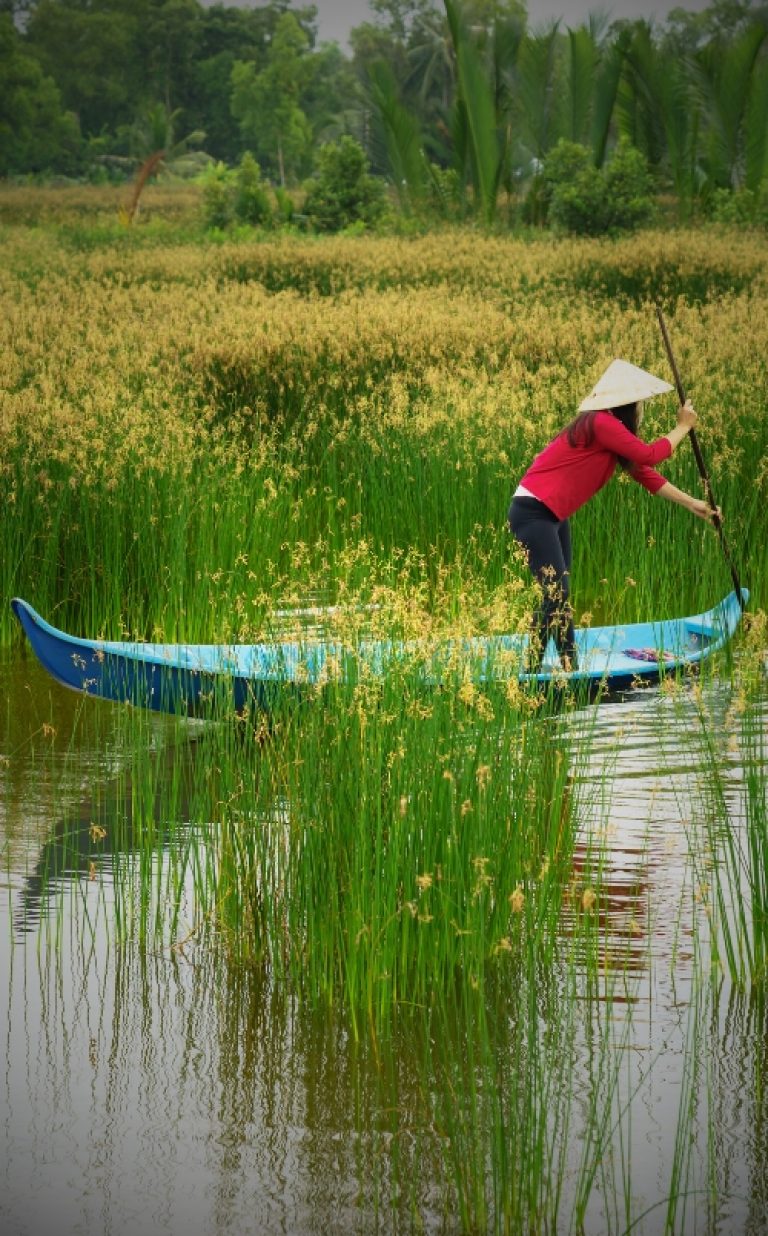
Mekong Delta
OUTDOOR ACTIVITIES
Discover the pleasure of fun and captivating outdoor activities. Enjoy every moment!

Trekking

whitewater rafting

mountain biking
Travel Tips

Visa Information
Check visa requirements before traveling, ensuring a smooth entry and compliance with destination regulations.

Health and Safety Tips
Prioritize health, stay hydrated, follow safety guidelines, and maintain personal hygiene for a secure journey.

Currency and Tipping
Familiarize with local currency, consider customary tipping practices for respectful and seamless travel experiences.
Book Your Dream Vacay Today!

